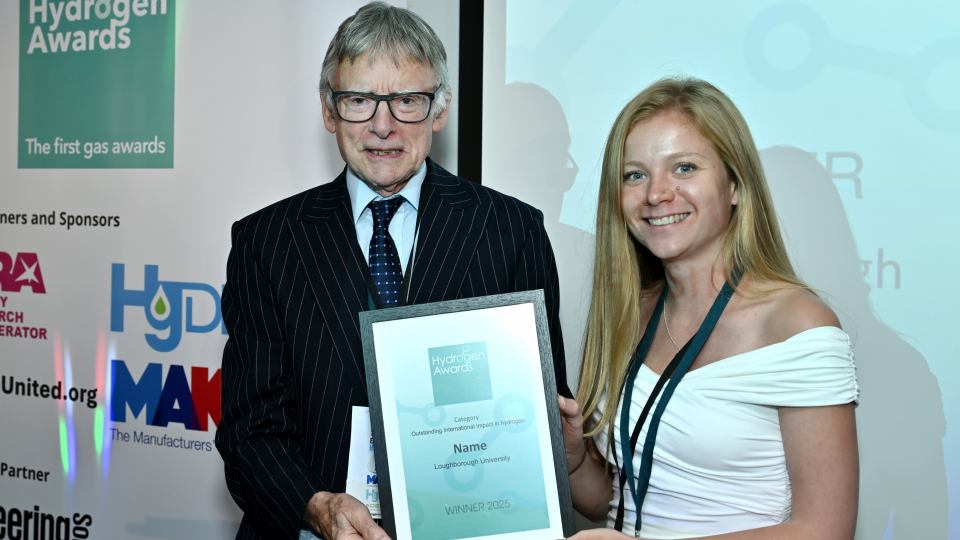This marks the second consecutive win for the innovation at the Hydrogen Awards, which celebrate global excellence in hydrogen innovation and recognise organisations driving meaningful change across the sector. This year’s judging panel praised Loughborough’s battery-electrolyser for its potential in both energy storage and green hydrogen production, particularly providing energy access in underserved regions and to off grid communities.
Developed by the Battery-Electrolyser Team at Loughborough University’s Centre for Renewable Energy Systems Technology (CREST), this technology has redesigned the traditional lead-acid battery. The battery electrolyser cells not only store renewable electricity for later use but can also produce high-purity hydrogen when overcharged. Built entirely from widely available, recyclable materials, it provides a low-cost and scalable alternative to standard electrolysers.
This month, the first full-scale containerised battery-electrolyser has been shipped to a rural hospital in Malawi, to provide solar-powered energy storage for lighting and medical equipment, while producing green hydrogen for clean cooking. Parallel international projects including a demonstrator at Loughborough University as part of the East Midlands Zero Carbon Innovation Centre will also demonstrate the system’s adaptability across diverse community settings.
Beyond its global humanitarian impact, the battery-electrolyser also offers a solution to UK energy challenges such as wind curtailment, converting excess renewable power into hydrogen and strengthening the UK’s hydrogen economy.
At the conference, Dr Lizzie Ashton, Senior Research Associate from the Battery-Electrolyser Team, presented “Rethinking lead-acid batteries for low-cost green hydrogen production”, highlighting the team’s journey from feasibility study to full-scale deployment in just three years.
Professor Dani Strickland, Project Lead and Director of EnerHy, the EPSRC Engineering Hydrogen Net Zero Centre for Doctoral Training, said: "We’re thrilled to receive this recognition from the Hydrogen Awards. Our battery-electrolyser shows how rethinking established technologies can unlock new pathways for clean energy access and hydrogen production – especially in communities that are often left behind."
Professor Dan Parsons, Pro Vice-Chancellor for Research and Innovation, added: "This award is a testament to the world-class hydrogen research emerging from Loughborough. It reflects our commitment to growing capability in clean energy innovation and building global partnerships that deliver real impact. The battery-electrolyser exemplifies how applied research can drive both technological progress and social change."
The Hydrogen Award for Outstanding International Impact reflects the team’s commitment to collaborative research, with partnerships spanning industry, NGOs, and academia, and major support from initiatives including Horizon Europe (LoCEL-H2), Innovate UK (MESCH) and East Midlands Freeport.
More about the battery-electrolyser can be found on the EnerHy website.
